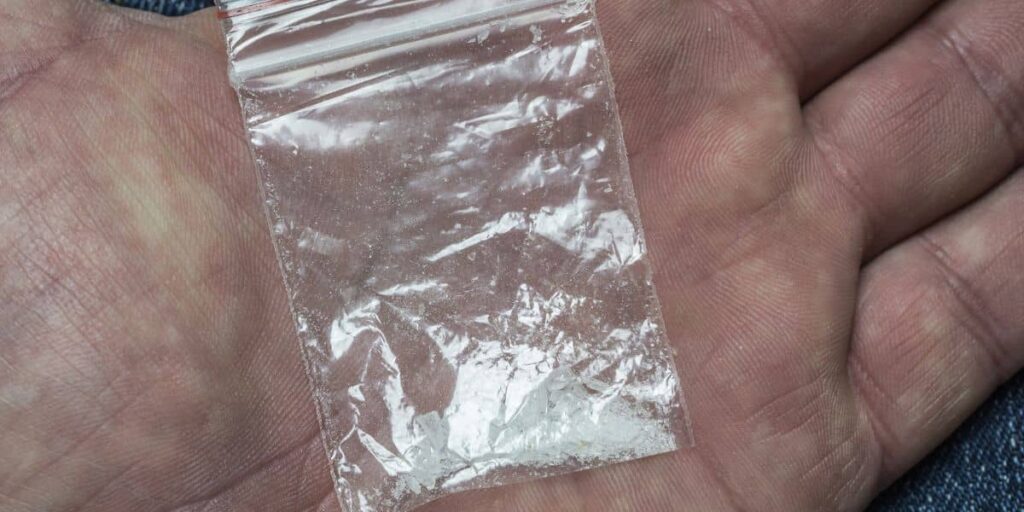Meth Addiction and Rehab Treatment

Meth, short for methamphetamine, is a potent and highly addictive drug. A recent study in America found that 1.5 million people are struggling with meth addiction. This means that a significant number of individuals in the country are facing issues related to excessive meth use. The study highlights the widespread problem of meth abuse in America.
Understanding Meth Addiction
Meth addiction starts quickly and is extremely hard to get over. Meth and crystal meth are cheap, readily available, and highly addictive. Once someone starts using meth, it quickly becomes a significant part of their life and can drastically change everything.
TV and movies often make using cocaine look cool, but they make using meth seem harmful and embarrassing. The truth is meth can affect anyone, no matter their background, because it’s strong and easy to find.
People use drugs for many reasons. We should treat everyone trying to stop using drugs with kindness, care, and respect. They all deserve good help to beat their addiction, including those struggling with meth.
How Addictive is Meth?
Meth is super potent and can hook people the first time they try it. People say they keep using meth because they want to feel that first incredible high again. The renowned experts on drug facts say meth is more potent and more addictive than cocaine.
When you use meth, it stops your brain from producing the proper amount of dopamine, or the feel-good chemical. Meth soaks up this chemical and makes your brain put out more of it. Meth makes you feel delighted, energetic, satisfied, confident, and interested in sex.
People smoke, snort, or inject meth, causing a quick and powerful high that leads to high addiction rates in the US. When that first powerful feeling fades, people will take more meth to try to feel that way again. Meth gets into their system fast, making their body depend on it quickly.
The crash or coming down from meth can last for days, and it feels terrible. It makes people keep using the drug so that they don’t have to go through meth withdrawal symptoms. Avoiding withdrawal keeps the cycle of addiction going.

Meth Detox
Detox is the starting point for treating addiction; the body and brain need to be clean to start learning how to beat addiction. Getting off meth can be incredibly challenging on both the body and mind. Experts say it’s safest to detox with medical help watching over you.
When you detox at a place where you stay and get help, doctors can watch how you’re doing all the time. They check your vital health signs and how you feel in your mind, and they’re there to help and support you whenever you need it.
Right now, there are no medicines that the United States Food and Drug Administration (FDA) says are okay to use just for helping with stopping meth. But some drugs are being tested right now and might be ready to use later.
In medical detox, doctors use FDA-approved medications to help with physical symptoms that occur when stopping meth use. These symptoms can include changes in blood pressure, heart rate, and body temperature. The medicines are safe and prescribed by doctors to ensure a smooth and more comfortable detox process. They also help with mind troubles like not being able to sleep, feeling depressed, feeling scared, or thinking about hurting oneself.
Methamphetamine use disorder alone is complex, and avoiding withdrawal can lead to relapse. Many feel discouraged when attempting detox without support. This shows why it’s so important to have medical help during detox to make it more likely to work out well.
Meth Inpatient vs. Outpatient Rehab Treatment
Everyone is different and needs different things when choosing the right help program. Trying to get better in any way is better than not trying at all.
Outpatient helps people stay at home and keep doing their daily activities. This includes work and taking care of your children.
Outpatient programs take place in private places or special centers where people go for scheduled meetings and activities. Some outpatient options also conduct random drug tests to make sure you are staying away from drugs.
Staying at a rehab place is crucial for challenging substance use problems like meth addiction. Where someone lives, and their friends can make addiction worse. Rehab helps by removing those influences and focusing on getting better. You don’t have to worry about planning your day, transportation, or temptations in rehab.
Treatment Therapies for Meth Addiction
Having a private conversation with a meth user can help a person better understand their addiction. It can also help them address and overcome deeper problems and issues that may be contributing to their addiction. This type of conversation can lead to improved awareness and, ultimately, better outcomes in their recovery journey. This also allows them to think differently about what makes them want to use drugs.
Getting better includes learning how to get along well with others and talk in good ways. Group talks and support groups are safe spots to get better at these skills while feeling like you’re part of a group and making friends who support you in getting better.
Family discussions can improve relationships, communication, and behavior within the family. Setting boundaries and communicating effectively can lead to positive outcomes after the program ends. It’s healthy for kids of people with addictions to talk with family. It helps them express their feelings, build trust, and strengthen their relationship in a safe environment.
Many places that help people get better have fun activities like art, music, and moving around. Finding hobbies that make you happy and learning how to have fun without using drugs are crucial for staying better for a long time.

Signs of Meth Addiction
The effects of meth abuse and addiction are severe and obvious. Meth users show many symptoms of addiction, and some symptoms of meth use appear right after taking the drug, while others appear after repeated long-term use.
Meth addiction symptoms include:
- Twitching
- Jerky body movements
- Teeth grinding
- Weight loss
- Tooth decay
- Paranoia
- Insomnia
- Violent outbursts
- Irritability
Long-Term Meth Effects
A lot of people are familiar with what the effects of meth look like on someone’s body, but the long-term effects on mental health can stick around longer and be more challenging to treat. Using harsh drugs, especially meth, changes the brain, and some of these changes might not go away if they aren’t addressed soon enough.
Two significant and lasting mental health problems that meth abuse can cause are anhedonia, which means not being able to feel happy, and psychosis from using meth, which can make someone see or believe things that aren’t real.
Psychosis caused by meth can start because of stress or just happen out of nowhere. It includes believing things that aren’t true, seeing or hearing things that aren’t there, feeling very scared of things without reason, and having trouble speaking or moving in specific ways. There isn’t a way to fix or cure psychosis that comes from using meth.
Other problems from using meth for a long time include:
- Depression
- Mood swings
- Parkinson’s disease
- HIV aids
- Liver damage
- Inability to feel pleasure
- Rotten or decayed teeth known as “meth mouth“
- Nerve damage
- Seizures
- Heart damage
- Saggy skin
- Depressed immune system
Meth can start these problems or make mental health issues someone already has worse. Some problems can improve with time and help, but others might need care for the rest of someone’s life.
Meth Addiction Treatment
Should you or a loved one be struggling with meth addiction, compassionate treatment is available.
At Northridge Addiction Treatment Center, we give caring, proven help for all kinds of addiction. We provide on-site medical detox in a peaceful, supportive place that helps you move smoothly and gently into getting better.
While you’re with us at our private residential treatment center, you’ll get a treatment plan made just for you and genuine kindness that helps you start to fix the harm addiction did and begin a fresh life based on getting and staying well.
Contact one of our caring treatment experts today. Start your path to recovery today with NATC.
Find Meaningful Recovery
Our caring and compassionate specialists are eager to help you comfortably navigate this journey to recovery. Our individualized treatment plan, programs, and therapies may be a perfect match for you or your loved one. Let us assist you in living the happy life you deserve. It starts with a phone call.




